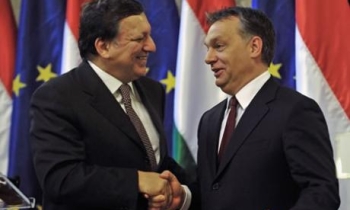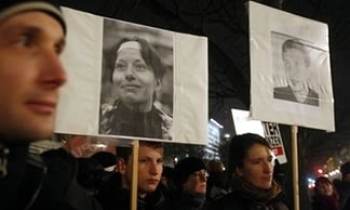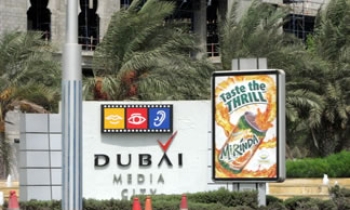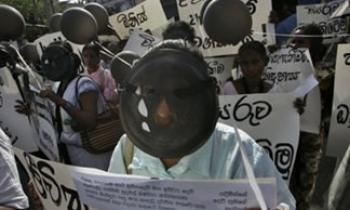Much of what people in modern societies know about the world beyond their direct experience comes from the media. To the extent that news content is believed, it helps shape the society, culture and politics. Since media plays an important role in creating a context for social and political action, right to know remains significantly important to serve the society and the public best. The right to know is a corollary to the right of expression.
Freedom of expression is, therefore, an internationally recognised right which is enshrined in Article 19 of the Universal Declaration of Human Rights. The freedom of expression has got a new dimension today as the wave of democracy is sweeping the world. The voice of the people is louder now with the collapse of the Berlin wall. All barriers in the way of freedom and democracy are apparently broken. In such an environment people's urge for freedom is greater. People are expecting more freedom of press, freedom of movement, freedom of religion and cultural freedom all over the world. The new democratic environment has created an opportunity to reassert media's right and freedom but that must be within certain ethics and responsibility.
The constitution of the People's Republic of Bangladesh guarantees freedom of expression and freedom of press. It has been stated in Article 39 of the constitution that freedom of thought and conscience is guaranteed subject to reasonable restrictions imposed by law in the interest of the security of the state, public order, friendly relations with the foreign states, decency or morality or in relation to contempt of court, defamation or incitement to an offence. The constitution of India has similar provisions and in the first amendment to the constitution of the United States in 1791 it was made clear that the congress shall make no law abridging the freedom of speech or of the press. But in the USA the doctrine of police power is a rule under which the states are said to have the inherent power to impose such restrictions as are necessary to protect the common good, public health, safety and morals. The American Supreme Court has observed "the liberty of the individual to do as he pleases even in innocent matters is not absolute."
I have quoted the constitutions and conventions of different countries just to make it clear that even in highly democratic societies there is nothing called unrestricted and unlimited freedom. Reasonable restrictions are , therefore, imposed on freedom of expression. But many people have raised the question whether freedom is infringed by imposing what is called reasonable restrictions. There are, however, reasons for such scepticism. There are instances of rulers in some countries enacting draconian laws to curb press freedom under the cover of such constitutional provisions. Even in Great Britain restrictions were imposed on free flow of information during the Falklands war under the cover of reasonable restrictions. Even now there is a move to decentralise the authority of BBC that will eventually result in imposing more restrictions on the management of the popular media. British government is acting upon Mutton commission report that held BBC responsible for misreporting which ended up in suicide- of Dr. Kelly, the weapons inspector in Iraq. In India restriction was imposed on freedom of speech and freedom of press during emergency rule in 1975 in our country such laws were enacted under the cover of Article 39 of the constitution. The Special Powers Act was one such law that had Sections 16,17 and 18 that empowered the administration to close down newspapers, impose precensorship and force journalists to divulge source of news. The way restrictions were imposed under Special Powers act can not be called reasonable by any standard. So it is debated how democratic Article 39 of the constitution of the People's Republic of Bangladesh is.
My personal view is that Article 39 has rightly been incorporated because no one should be allowed to enjoy freedom that may affect others. There was an interesting case in Great Britain on this point .The case was regarding the limit of freedom of an individual. The case in question was one passenger of a public bus hit the nose of another passenger while moving his hands inside the bus. The injured bus passenger sued the person who hit him in the nose. During the submission, the accused person told the court that he had no intention to hit the nose of the complainant. He was just enjoying his freedom in movement of his limbs that might have affected the complainant. The judgement was clear. The judge said "certainly you have the freedom to move your hands freely either inside the bus or anywhere. But you must remember that your freedom ends where his nose begins:' While justifying the reasonable restrictions, I feel that there should be another provision so that no dictator can take advantage of this provision of the constitution to restrict free flow of information under the cover of reasonable restriction. .
Free flow of information remains important because that ensures people's right to know. Unless you know the facts, unless you are aware what is happening in the society, you can not express properly what you want to say. In this context, access to information is very important to guarantee freedom of press. But in our country such access to information is restricted by the Official Secrets Act. During the British rule the official Secrets act was promulgated to hide misdeeds of the colonial rulers. Unfortunately, this law is in force until today in Bangladesh, India and Sri Lanka. It is not unique in South Asian countries only. Such laws are there in many other countries to obstruct journalists to get information. The International Federation of Journalists conducted a survey that revealed that bureaucrats in almost all countries try to hide facts. But the code of ethics of journalism states that it is the duty of the press to carry information on what goes in the society and uncover and disclose matters which ought to be subjected to criticism. In a fundamental sense information in the hands of the government belongs to the public having been collected through use of tax payers money But under the cover of Official Secrets Act the officials always hide the truth and the normal flow of information is obstructed.
It is universally difficult to get news of the armed forces because certain information is kept secret for the security of the country. It is acceptable even in highly developed democracies. During the Gulf War 1 was in Dhahran in Saudi Arabia where the Pentagon had its operational headquarters. I got my accreditation to cover the event there but I was asked to work under certain restrictions. Ground rules that 1 had to accept in getting accreditation were "no question could be asked on location of troops, number of troops."
The restoration of democracy (that until now remains confined only to periodical holding of elections in our country since 1991) has at least created an atmosphere now which is congenial for institutionalising the freedom of press. Presently, there arc no major legal restrictions in exercising freedom of press except the official Secrets act and defamation law that are often abused by the administration to restrict free flow of information and to harass mediamen.
It is true that the journalists had to work within legal restrictions when the country had no democracy. But now at least there is democratic environment in our country. In this situation it is quite natural that the press would work freely. But the pertinent question is asked by many whether the press is fully free after the repeal of black laws. Honestly speaking the press is yet to be fully free because besides the black laws there are so many restrictions in our society that have been infringing freedom of the press. The most vital one is economic factor. Many newspapers have been published taking the advantage of easy licensing procedures but these dailies and periodicals are not financially independent. It is a recognised fact that financial dependence makes institutions and individuals sub servant. The owners turn back to the advertisers, government or private, for their survival and in this process they compromise freedom.
The second most important factor which is standing in the way of both free and responsible press is the invasion of the editorial institution by the non-journalists. Persons who have money can bring out newspapers and taking the advantage of a bad law they are becoming editors without having any knowledge of journalism. The provision for qualification of editor in the printing presses and publications act needs to be amended providing the opportunity to professionals to become editor. The Press Council has already recommended this to the government. Unless the supremacy of the editorial institution is upheld, the freedom of press and responsible journalism in Bangladesh will remain elusive.
There should be some thoughts on the ownership of the newspapers. The issue being debated even in developed countries is whether the individual ownership of newspapers negates the plurality in the society. We should think over the situation in the context of Bangladesh. The control over the paper by the owner is an unwritten restriction on freedom of press and expression. I strongly feel that time has come to ponder over this issue to think of some collective ownership to end monopoly of opinion. In many developed countries there are provisions to restrict monopoly of opinion in different ways. For example, there are countries which don't allow newspaper owners to own electronic media. But there is no such law in our country.
I know this new idea will jolt our established system. But in the new democratic environment can't we think about something new, something innovative? Already the ownership of some newspapers has been vested in independent Trust in France that are working freely.
The most dangerous threat to freedom of press in our country and in the region of South Asia is social intolerance. The people expect that newspapers should unveil the truth and in doing so they should be bold. But when truth starts biting some one person or a group of people they resort to violent methods in seeking reme-dy. They attack the newspaper offices, assault journalists and kill some of them. In recent years, the south western region of Bangladesh has become the most violent area for newsmen. As many as twelve journalists have so far been killed in that area. The successive governments have failed to identify the killers. Who they can be? Are they underground political activists or traffickers or the result of internecine quarrel? The motive of the murder of journalists should be unveiled. The journalists come under attack because democratic culture has not taken root in our country. Unfortunately most of the violent attacks come from the political parties. Unless the society is completely transformed into a democratic society, this threat will continue to gag the press.
The issue was debated in different fora. One suggestion which came in the process recommended giving more power to press council. The press council today is not an effective institution. As a member of the judicial committee in the Press Council I saw that the whole trial procedure in the council is like that of a normal court proceeding. But the council can provide very little remedy to the aggrieved Person/ Cersons- only admonition or censoring the paper or the jour-nalists concerned. I feel that it would reduce the intolerant outburst of genuinely aggrieved people if the Press Council can give quick and effective remedy to the affected person. Another function of the press council is to enforce ethics of journalism. The ethics of journalism is more or less universal in nature except certain peculiarity of a country.
It is in this background that many have raised the question of responsible journalism for sustenance of democracy and social stability. There have been accusations yellow journalism. Such newspapers are accused of blackmailing and character assassination cither as a mission or for getting some benefits. Such cases are not rare even in developed democracies. But this type of irresponsible journalism is rampant in countries where the media has just started enjoying freedom in the new democratic environment. In our country such cases are reported to us. But it is very difficult to deal with such cases due to ineffectiveness of our press council. There are again some newspapers that run news full of obscenity.
In recent day's an ethical question has been raised. Is it ethical to call somebody a killer, a thief or corrupt until the time he or she is convicted by a court? Is it proper to print the photograph of a person with handcuffs calling him a terrorist or hijacker or murderer before he or she is convicted? In certain cases media influence the court. It happened in certain sensational cases. The accused's parents\ lawyers alleged that their children or clients arc often tried by media before they are tried by the court of law. There are logic behind such accusation. But enforcement of ethical and moral values is not that strong in our country. So the newspapers can not shirk the responsibility of such unethical practices at times either willingly or forced by circumstances. The big newspapers in different countries appoint "press ombudsman" to take complain from the people. Such steps protect individual liberty and privacy of individuals. In Bangladesh no such institution exists.
The electronic media that has much more influence than that of the print media is not fully free in our country until now. The private sattelite channels enjoy or exercise some amount of freedom in telecasting news. I must admit that sometimes their presentation of news is better than that of the print media. But hardly 10 to 15 per cent of the viewers can see the Channel TV because of the technical limitations. But unfortunately, the state owned electronic media, both radio and television that cover the whole country are spoon-fed. How influential the television can be was felt when ETV was freely telecasting the domestic news. The channel has been closed due to legal fault. The sky is now open. There has been cultural invasion through channel television from other countries. There are accusations that the impact of such cultural invasion by media is becoming disastrous for our society. So here again many people are advocating for reasonable restrictions to stop moral degradation in our society. Even in American society this issue is debated seriously especially after some cases of shooting in schools by teenagers who are inspired by violent scenes in television.
Freedom of press, right to know, freedom of speech and access to information are the hallmark of an undiluted democracy. Media's freedom, democracy and good governance are as inseparable as the human rights are. So a free media is essential for building a society with moral, ethical and democratic values that impact our society and culture largely.
The information, in general, and the media, in particular, can also be decisive by tipping the social and political balance on issues of authoritarianism and democracy, autocracy and theocracy, development and parasitic consumption, war and peace, conflict prevention, conflict resolution and reconciliation in post conflict situation. If the media can function freely in a democratic atmosphere, the society is benefitted and civilisation gets a boost from such freedom.
(Reazuddin Ahmed, Editor, The News Today and President, SAFMA Bangladesh delivered this speech at the National Conference on Press Freedom and Media Laws organised by SAFMA, Bangladesh in Dhaka on June 24, 2006)









